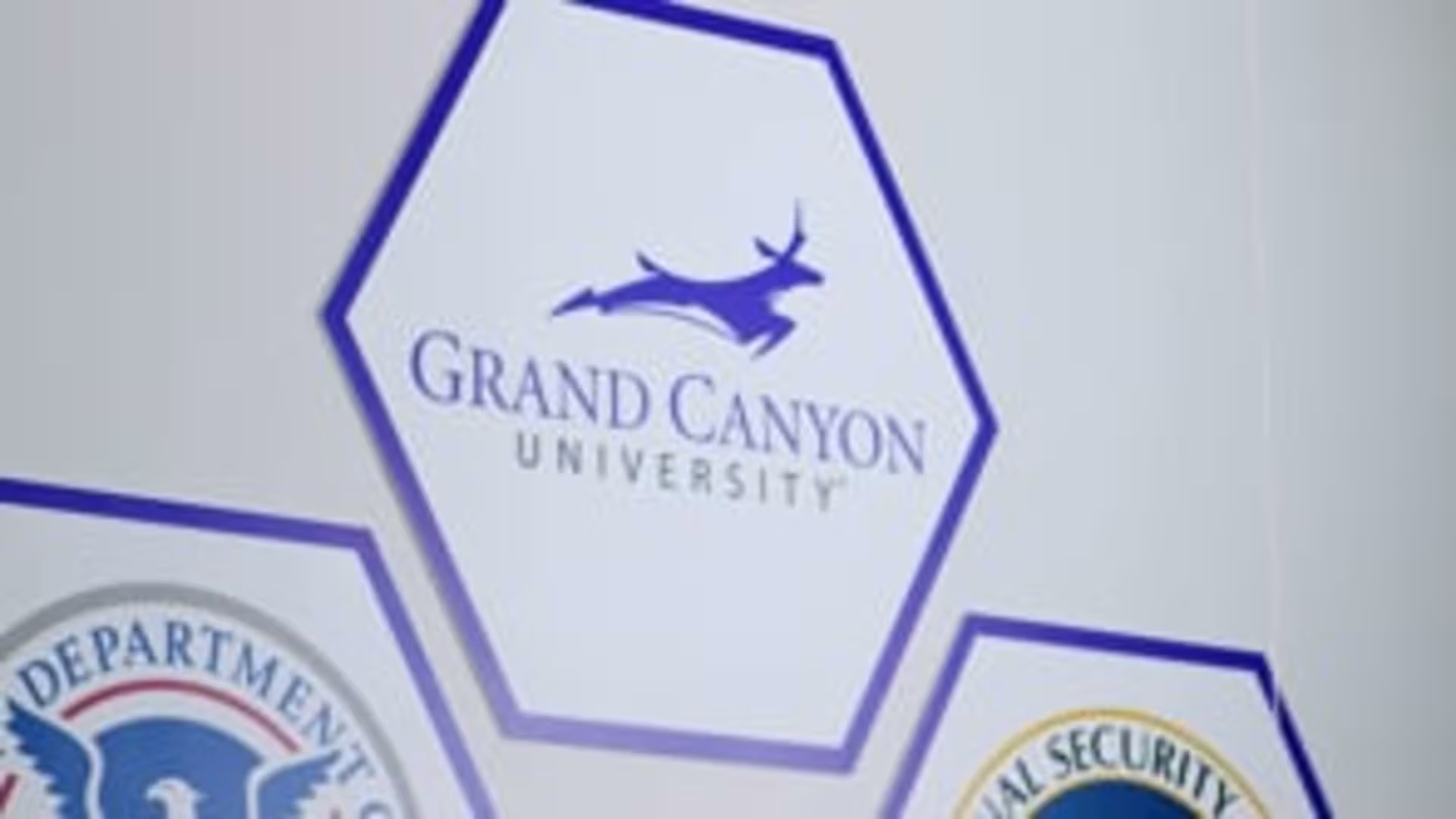
Technology Majors: Where Creativity Meets Innovation
Explore Innovative Opportunities in Technology
Technology majors at GCU have the opportunity to apply themselves to a field in dynamic and innovative ways. As you pursue your STEM degree, you will have the opportunity to gain knowledge and experience hands-on work in important technical aspects of the field. As you complete your studies, you can prepare for a career in the IT space.

Types of Technology Bachelor’s Degrees at GCU
At GCU you can choose a program that best prepares you for your career in the field. We offer various degree options focused on areas such as applied technology, software, IT and business technology.
Applied Technology
Business Technology
Software and IT
Explore All Undergraduate Tech Majors
0 Matching Degrees
Technology Bachelor’s Coursework
During your undergraduate technology coursework, you will be taught a variety of subjects essential for becoming a well-rounded professional.
Some of the key topics include:
Computer programming
Network security
Database management
Systems analysis and design
Cybersecurity principles
Information technology project management
Number of research and development projects during the 2023-24 academic year
Number of labs paired with technology classes
Why Technology and IT Majors Matter Today
Technology is a driving force in so many areas of our lives. Staying on top of current trends and technological advances can be difficult, and it can be even more difficult to understand how they may affect us and the many industries we depend on. According to the U.S. Bureau of Labor Statistics (BLS), overall employment in computer and information technology occupations is projected to grow much faster than the average for all occupations from 2022 to 2032.(See disclaimer 1) As the importance of this field grows, so does the need for knowledgeable professionals to monitor, implement and improve these technologies.
Undergraduate Admission Requirements
You must meet specific academic requirements to become a technology major at GCU. These can include GPA and general education prerequisite requirements. To learn more about your eligibility, review our undergraduate admission requirements and complete the form on this page to speak with a university counselor.

Pair Your Major With a Minor of Your Choice
If your academic focus falls outside of technology, there are still ways to incorporate this critical knowledge into your studies. We offer various technology minors that can complement most degree programs. With options such as a minor in cybersecurity, networking technology and web application development, you can gain additional knowledge to help yourself become a more well-rounded, competitive professional, no matter what field you’re pursuing.
Check with your university counselor to see if adding a minor to your degree program is available and aligns with your academic and career goals.
Accreditations and Designations
GCU and our technology programs are accredited to ensure that we offer quality academic programs that can help prepare you for your career.
Our bachelor’s in computer science programs are accredited by ABET and have been verified to meet the high standards established by the accreditor. These standards help to ensure our students are receiving an education that can prepare them to enter critical technical fields and positively contribute to society.
GCU is institutionally accredited by the Higher Learning Commission (HLC), receiving continuous accreditation since 1968. Our accreditation speaks to the quality of the university and the programs we offer. We take pride in ensuring our students receive a valuable academic experience that can help them reach their goals.
Receiving the CAE-CD designation demonstrates our commitment to strengthening the national infrastructure. By offering programs that promote research in cyberdefense, we can help graduate professionals who can contribute to the good of society. The CAE-CD designation recognizes college programs that meet the National Security Agency (NSA) and Department of Defense (DoD) learning standards.
Career Possibilities After Earning Your Bachelor’s
There are various career possibilities for information technology majors and tech majors. Job potential may vary depending on your specific focus, such as IT, software development or business technology.
According to the U.S. Bureau of Labor Statistics (BLS), the median annual wage for computer and information technology occupations was $104,420 in May 2023.(See disclaimer 2) About 377,500 openings are also projected each year, on average, for this group from 2022 to 2032.(See disclaimer 1)
Some potential career paths include:
Computer and information systems manager
Computer systems analyst
Information security analyst
Data scientist
Computer network architect
Database architect
Software developer
Software quality assurance analysts and tester
Computer hardware engineer
Median annual wage for computer and information technology occupations as of May 2023(See disclaimer 2)
Estimated number of new jobs for computer and information technology occupations from 2022 to 2032(See disclaimer 1)
FAQs for Aspiring Technology Majors
If you’re looking to enter the technology field, review some commonly asked questions and answers to gain more insight into this career path.
What technology bachelor’s degrees are best?
What math courses are required for technology majors?
What are the differences between IT vs. computer science majors?
Which bachelor’s degree is best for the IT field?
What degree do most technology jobs require?
Support and Resources for STEM Students
All our students have access to helpful support and resources that can aid them as they pursue their degrees. Technology students may benefit from taking advantage of the multiple on-campus or online resources. College of Engineering and Technology students can also explore additional resources specific to their field of study.

Take the first step in your STEM journey by applying for a technology major at GCU. Learn more by speaking with a university counselor.
- COVID-19 has adversely affected the global economy and data from 2020 to 2022 may be atypical compared to prior years. Accordingly, data shown is effective September 2023, which can be found here: U.S. Bureau of Labor Statistics, Occupational Outlook Handbook, Computer and Information Technology Occupations, retrieved June 19, 2024.
- The earnings referenced were reported by the U.S. Bureau of Labor Statistics (“BLS”), Computer and Information Technology Occupations, as of May 2023, retrieved June 19, 2024. Due to COVID-19, data from 2020 to 2023 may be atypical compared to prior years. BLS calculates the median using salaries of workers nationwide with varying levels of education and experience. It does not reflect the earnings of GCU graduates in computer and information technology occupations, nor does it reflect earnings of workers in one city or region of the country or a typical entry-level salary. Median income is the statistical midpoint for the range of salaries in a specific occupation. It represents what you would earn if you were paid more money than half the workers in an occupation, and less than half the workers in an occupation. It may give you a basis to estimate what you might earn at some point if you enter this career. Grand Canyon University can make no guarantees on individual graduates’ salaries. Your employability will be determined by numerous factors over which GCU has no control, such as the employer the graduate chooses to apply to, the graduate’s experience level, individual characteristics, skills, etc., against a pool of candidates.
- U.S. Bureau of Labor Statistics. (2024). Computer and Information Technology Occupations. Occupational Outlook Handbook. Retrieved June 18, 2024.
- Wintemute, D. (2022, Dec. 23). How To Become a Computer and Information Research Scientist. Best Colleges. Retrieved July 10, 2024.

